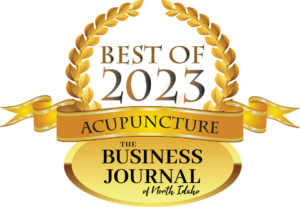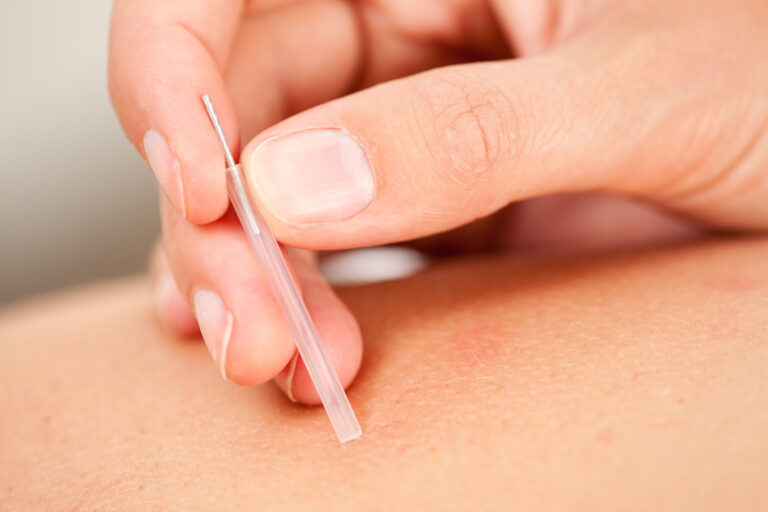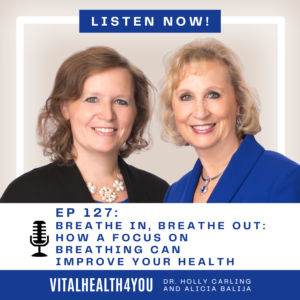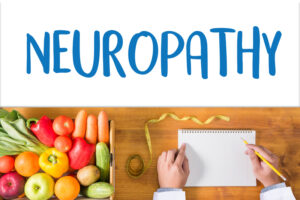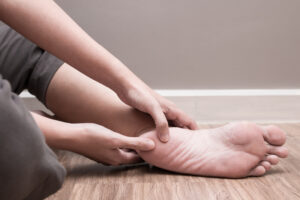I met up with a delightful lady today that I hadn’t seen (as a patient) in many years. She told me that she is still so grateful for all that I did for her health and that she continually refers people to me. “But”, she said “Everyone is so afraid of needles that they won’t try acupuncture! You need to write an article about how acupuncture doesn’t hurt!” What a great idea. So, here it is!
It’s true, while acupuncture is gaining popularity as so many people are experiencing the benefits, there are also too many people who are afraid to go because they hear the word “needle” and are too scared. With acupuncture, I think they should replace the word “needle” with “filament” because that is how thin they are.
Hypodermic needles, the kind they use to administer medications, have a beveled edge, a cutting edge. It is designed to cut a hole in the skin in order to inject a fluid (or at a lab to remove a fluid – blood or amniotic fluid). There is pain associated with being cut, pain from a burning fluid being injected, and pain from the localized edema. An acupuncture needle is totally different. It is tremendously thinner (in fact, you can slip multiple acupuncture needles into the shaft of an average hypodermic needle). It has a round circumference at the end, sharp enough for an effective insertion, mostly into a pore, but not too sharp to keep hurting after placement. Nothing is injected, and nothing is removed. So there is not pain from being cut (because the “filament” slips into the tissue like a pin in your jacket), no pain from a burning fluid (because there is none), and no localized edema.
Most people experience the needle placement like a mosquito bite. It doesn’t feel like a stab, because it is a more precise placement. A guide tube is generally used for this precise placement, which also works to minimize sensation since, as it is pressed into the skin, it stretches the skin just a touch, but enough to support it easily slipping into the skin.
Approximately 19 out of every 20 patients I see are terrified of needles, but they come in because they trust in this age-old healing modality that has withstood the test of time. They are willing to do what is necessary to be well. Once they’ve had their first treatment, they express amazement over how easy it was and wished they had come long ago. While there are a few super-sensitive individuals that feel more than the average person, they too feel it is worth it.
Because acupuncture works on the neurotransmitters of the brain, what you experience once they are placed, is calmness. Many people come in feeling stressed and they can feel the stress just melting away. Acupuncture is generally performed in private rooms, the temperature adjusted perfectly, the lighting dimmed and soft music playing. It is a relaxing, yet rejuvenating experience.
©2018 Holly A. Carling, O.M.D., L.Ac., Ph.D.

